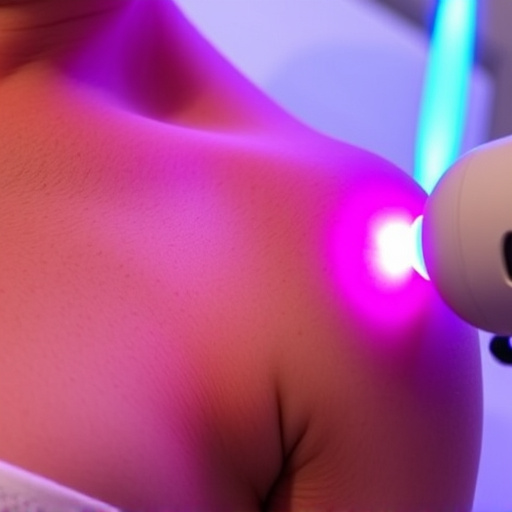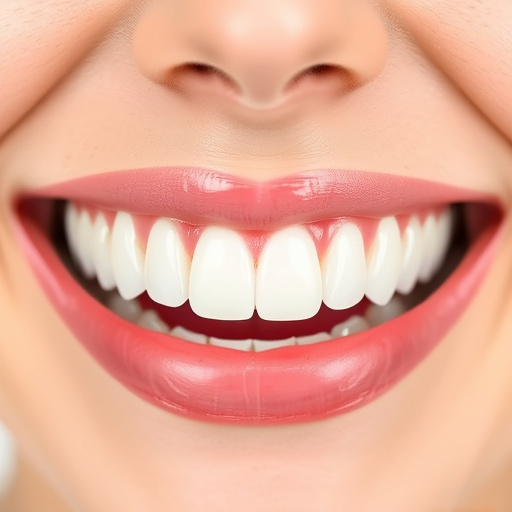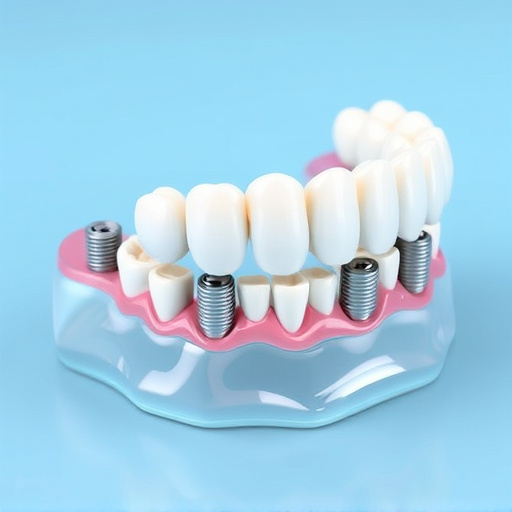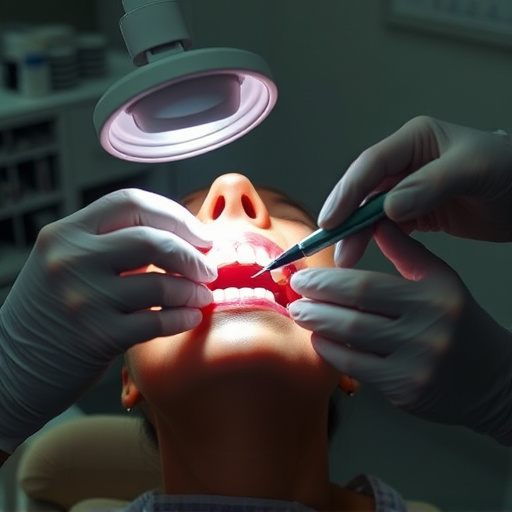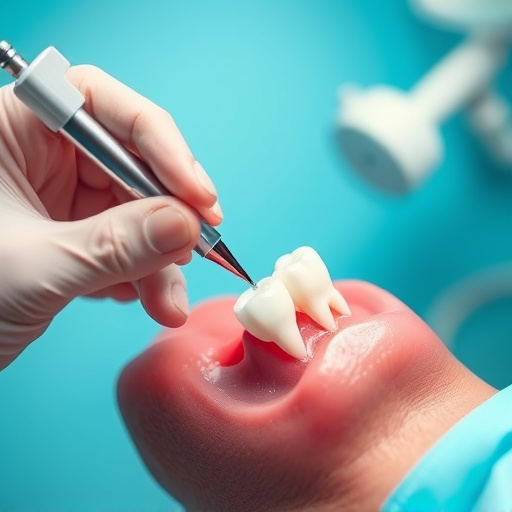TMJ disorder treatment involves managing a joint condition affecting jaw movement, with symptoms ranging from mild to severe. Causes include bruxism (teeth grinding), injury, or misaligned jaws. General dentistry offers non-invasive solutions like custom night guards and splints for quick relief and long-term benefits, reducing pain, inflammation, and preserving dental health. These approaches are often the first line of defense before more advanced interventions.
TMJ disorder treatment options have evolved to include non-invasive approaches, offering relief for those suffering from jaw joint pain and related issues. This article explores dental splints and night guards as effective solutions for managing TMJ disorder (TMD). Understanding the condition’s impact on daily life is key, and these devices provide a gentle, conservative treatment path. By examining their proper use and benefits, readers can gain insights into regaining comfort and improving overall oral health with minimal intervention.
- Understanding TMJ Disorder and Its Impact
- Exploring Splints and Night Guards as Non-Invasive Treatments
- Effective Use and Benefits of Dental Splints and Guards
Understanding TMJ Disorder and Its Impact

TMJ disorder treatment is essential for managing a condition that affects the temporomandibular joint (TMJ), responsible for jaw movement. This joint connects the mandible to the skull, and its dysfunction can lead to significant discomfort and impact daily life. TMJ disorder symptoms range from mild to severe, including jaw pain, headaches, earaches, and difficulty chewing or opening the mouth wide. The condition may be caused by various factors such as bruxism (teeth grinding), injury, arthritis, or misalignment of the jaw.
For many patients, general dentistry interventions play a crucial role in TMJ disorder treatment. This can involve the use of custom-fitted night guards and splints to reduce stress on the joint during sleep and rest. Cosmetic fillings and cosmetic dentistry techniques may also be employed to address any dental abnormalities or issues that contribute to the condition. By combining these treatments, dental professionals aim to alleviate symptoms, restore oral function, and improve overall quality of life for individuals struggling with TMJ disorder.
Exploring Splints and Night Guards as Non-Invasive Treatments

Exploring Splints and Night Guards as Non-Invasive Treatments for TMJ Disorder
TMJ disorder treatment often starts with non-invasive approaches aimed at alleviating symptoms and promoting oral health. Splints and night guards are among the most commonly used tools in this category. A dental splint is a protective device worn over one or more teeth to prevent grinding or clenching, which can exacerbate TMJ issues. These splints can be designed for either day use or nighttime wear, depending on the severity of symptoms and your dentist’s recommendation. Night guards, specifically tailored for overnight wear, are also effective in reducing jaw tension and minimizing damage to teeth and gums caused by bruxism (teeth grinding).
These protective devices offer a conservative treatment option, especially when compared to more invasive procedures like surgery or joint injections. They’re easily accessible through general dentistry practices, and their use can significantly improve quality of life for individuals suffering from TMJ disorder. During routine oral exams, dentists can assess the need for splints or night guards as part of a comprehensive TMJ disorder treatment plan, often suggesting them as an initial line of defense against symptoms before considering more advanced interventions.
Effective Use and Benefits of Dental Splints and Guards

Dental splints and night guards play a pivotal role in TMJ disorder treatment, offering both immediate relief and long-term benefits. These protective devices are designed to alleviate stress on the temporomandibular joint (TMJ) by adjusting jaw position and reducing teeth grinding or clenching. For individuals with TMJ disorder, wearing splints or night guards during sleep can significantly decrease pain, inflammation, and muscle spasms.
One of the key advantages lies in their ability to preserve dental health. Unlike cosmetic fillings or routine oral exams that address surface-level issues, these devices protect teeth from excessive wear caused by grinding. By preventing tooth erosion and maintaining proper bite alignment, they contribute to the overall health of the mouth and can even support restorative dentistry procedures. Effective TMJ disorder management often involves a combination of treatments, and dental splints/guards stand out as essential tools in achieving lasting relief and preserving oral well-being.
TMJ disorder treatment options, such as dental splints and night guards, offer non-invasive solutions for managing symptoms. By providing protection during chewing and sleep, these devices can alleviate pain, reduce inflammation, and prevent further damage to the temporomandibular joint. In combination with other therapeutic approaches, splints and guards can significantly improve quality of life for individuals struggling with TMJ disorder, offering a gentle path towards relief and recovery.







